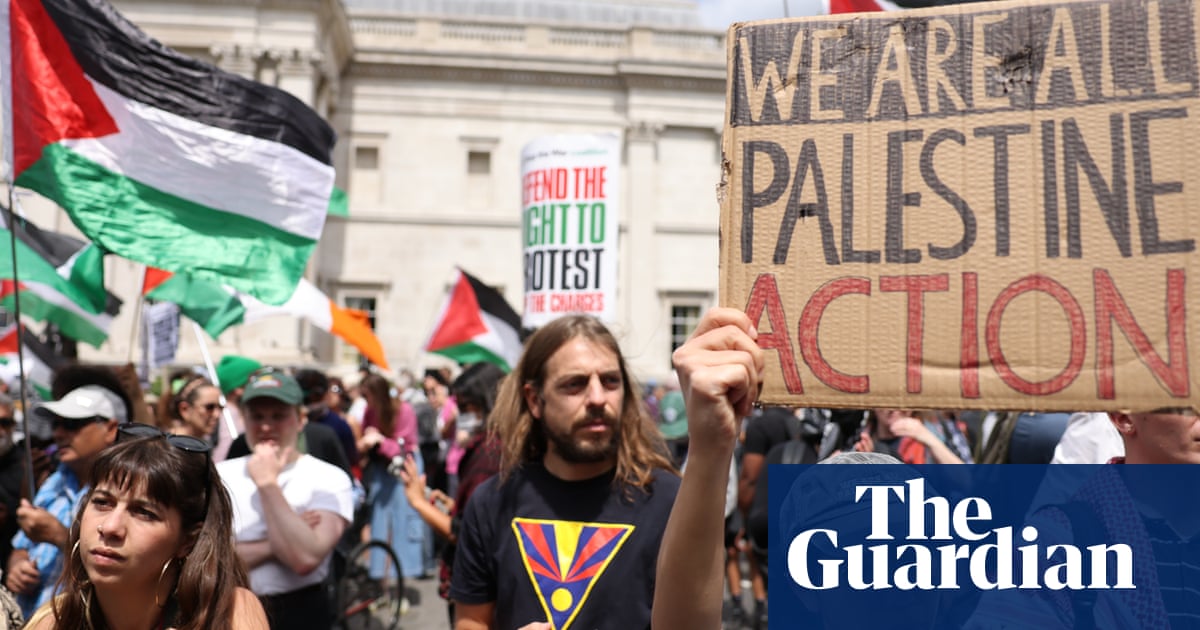The UK home secretary has said she will ban Palestine Action under anti-terrorism laws, ignoring a warning from the group’s solicitors that the proposal was “unlawful, dangerous and ill thought out”.
In a statement to parliament on Monday, three days after activists from the groupbroke into RAF Brize Norton, Yvette Cooper said a draft proscription order would be laid in parliament on 30 June. If passed, it would make it illegal to be a member of, or invite support for, Palestine Action.
The group, founded in 2020, says it aims to prevent the commission of genocide and war crimes in Palestine and to expose and target property and premises connected to such crimes against humanity.
Many of its activists have been acquitted by juries in the past and a letter from Kellys Solicitors, representing Palestine Action, sent to Cooper on Monday said the group “has gathered a significant level of public support”.
But in her statement, the home secretary said: “The disgraceful attack on Brize Norton in the early hours of the morning on Friday 20 June is the latest in a long history of unacceptable criminal damage committed by Palestine Action. The UK’s defence enterprise is vital to the nation’s national security and this government will not tolerate those that put that security at risk.”
She claimed its activities had included operations against “key national infrastructure and defence firms that provide services and supplies to support Ukraine”.
The letter to Cooper from Kellys, shared exclusively with the Guardian, said there were no previous instances of direct action protest organisations being proscribed under the Terrorism Act 2000, despite several others having used comparable methods to Palestine Action, and that it was a “terrifying precedent” to place it alongside groups such as Islamic State, al-Qaida or National Action.
It said: “Whilst some actions of those associated with Palestine Action have involved damage to property, activists do not advocate or intend unlawful violence against the person. A significant number of actions associated with Palestine Action have used entirely conventional campaigning methods such as marches, rallies and demos. It is an authoritarian turn and an abuse of language to label them as a ‘terrorist’ organisation …
“The proposal to proscribe Palestine Action is wholly unprecedented and constitutes an unlawful, dangerous and ill-thought-out attack on freedom of expression and assembly.”
On Sunday night, the Met police placed public order restrictions on a planned solidarity demonstration for Palestine Action, banning supporters from gathering outside parliament on Monday and restricting the protest to between 12pm and 3pm.
